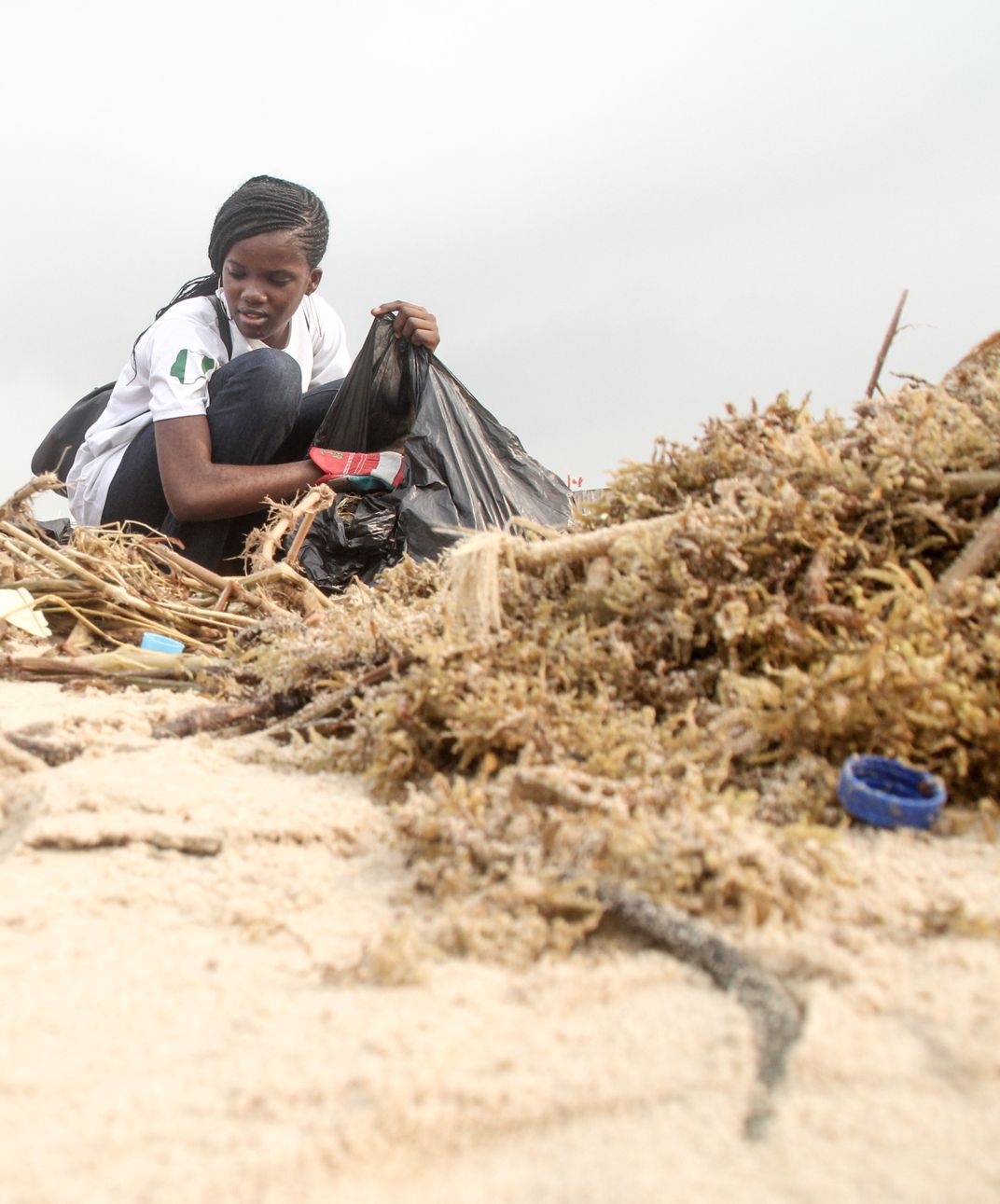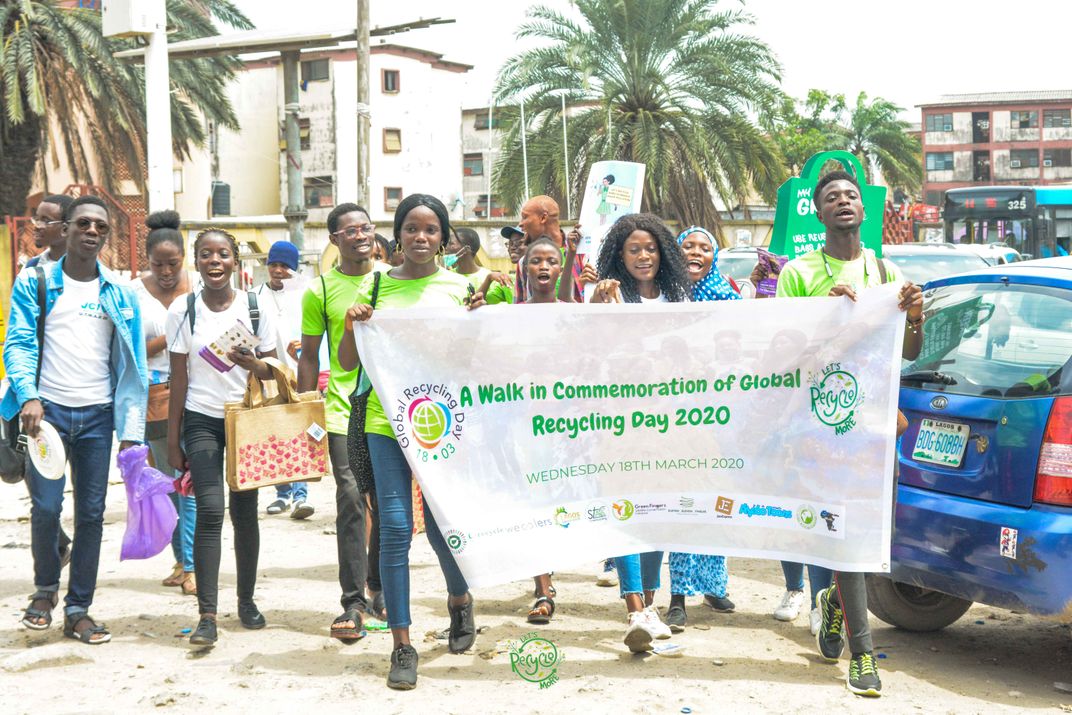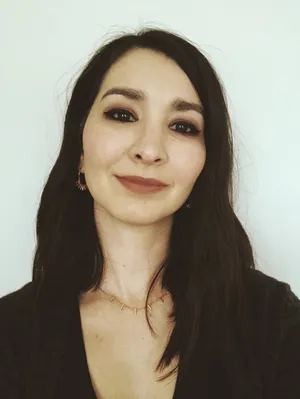How Nigeria’s Oluwaseyi Moejoh Is Spreading Conservation Activism Across Africa and Beyond
Member States of the UN have struggled to meet targets set by the Sustainable Development Goals (SDGs) adopted in 2015. A student in Nigeria recognized this dire problem and how it affected her local environment and people in her community. But she didn’t just wait for change, she took the initiative, and her solutions and enthusiasm have spread through Africa and beyond. Meet Oluwaseyi Moejoh, founder of U-recycle Initiative Africa, National Geographic Young Explorer, current law student, and all-around force for positive change and a sustainable planet.
/https://tf-cmsv2-smithsonianmag-media.s3.amazonaws.com/blogging/featured/IMG_2030-2.JPG)
Member States of the UN have struggled to meet targets set by the Sustainable Development Goals (SDGs) adopted in 2015. A student in Nigeria recognized this dire problem and how it affected her local environment and people in her community. But she didn't just wait idly for change, she took the initiative, and her solutions and enthusiasm have spread through Africa and beyond. Meet Oluwaseyi Moejoh, founder of U-recycle Initiative Africa, National Geographic Young Explorer, current law student, and all-around force for positive change and a sustainable planet.
What inspired you to become a sustainability leader?
In several Nigerian communities, people live surrounded by improperly managed waste. Poor waste management systems have been a prevalent problem for decades, which has devastating effects on public health and the environment.
My change-making journey started while I was at High School as a 16-year-old in Grade 11. I was selected as the 2017 Global Goal Six Ambassador at The Neo Child Initiative Africa (TNCI) and engaged over 2,000 girls at my school on SDGs, sanitation, and recycling projects.
In September 2018, I took a step further to begin my organisation, U-recycle Initiative, with a $200 mini-grant to promote geared towards inspiring people to become more concerned about how their actions can pollute or protect the environment.
Polluted oceans, threatened ecosystems, death of marine creatures, mass extinction of marine biodiversity, extreme waste dumping, clogged drains, flooding, poor air quality, polluted streets, poor waste management systems/policies, the harsh effects of the above on vulnerable communities. As an environmentalist, these pervasive issues drive me to continuously ideate, mobilize, strategize and collaborate to discover and implement effective solutions towards addressing plastic pollution here in Africa.

Tell us more about the U-Recycle Initiative. How has it made an impact so far?
U-recycle Initiative Africa is a registered (CAC/IT/NO 157391) youth-led, non-profit organisation committed to advancing circular economy, environmental sustainability, and climate action across Africa.
Our projects are focused on enlightening youths to take action, empowering youths to create solutions to combat plastic pollution, and creating value from waste.
U-recycle Initiative's efforts are geared towards mitigating plastic pollution across Africa and protecting oceans, vulnerable communities, the planet, biodiversity, and humans from the perils of the plastic pollution crisis.
As of May 2021, we have implemented over ten projects which have educated and engaged thousands of people in 11 African countries.
We are currently working with National Geographic's support to scale our work to reach thousands of high-school students across six states in Nigeria through our recently launched African Youth for Environment Fellowship (AY4E).
Since you focus on the UN's Sustainable Development Goals with your organization’s mission, why do you think the adopting Member States have not been able to reach these same goals?
Most member states have failed to prioritize this issue – this could be owing to their governments' ineptitude to recognize it as a serious issue or because other critical societal challenges have overshadowed it. However, as advocates, our mission is to continue to draw the government's attention to the need to address/achieve these goals because they are intrinsically linked to our survival and future on this planet.

What is the most valuable thing that you have learned from starting a youth-led organization? And what advice would you give to someone who might be interesting in creating one themselves?
Little actions build to big impact. When I started my organization at 17, it was all about taking baby steps, doing what I could to promote awareness in schools and communities about the need to REDUCE, REUSE and RECYCLE.
One piece of advice I would give to someone interested in starting an organisation is that knowledge is a very powerful tool. Try as much as possible to invest in knowledge and be intentional about building your capacity through courses, trainings, fellowships, boot camps, etc.
In addition, leverage networks and opportunities to expand and deepen your impact.
Can you tell us about what it means to be a High Seas Youth Ambassador?
The High Seas Alliance is a partnership of organizations and groups aimed at building a strong common voice and constituency for the conservation of the high seas. The mission of HSA is to conserve the world's high seas — which cover half of our planet.
As a High Seas Alliance Youth Ambassador, I am working with 14 other Ambassadors to increase youth and public awareness of the importance of the high seas, empower young ocean activists and pressure governments to take more ambitious, conservation-focused positions.

Are there any fellow youth changemakers that inspire you?
Melati Wijsen (an Indonesian/Dutch youth activist and founder of Bye Bye Plastic Bags)– I admire her commitment, consistency, tenacity, and creativity. She started her change-making journey at the age of 12, and it's been over eight years since then, and she still thrives, birthing new solutions and supporting other youths to create change.
Finally, makes you feel optimistic about our planet's future?
The youth make me optimistic; they are inspiring, goal-getters, and birthing and implementing fresh solutions. In addition, despite the numerous challenges they face in bringing about constructive change, the youth remain energized and resilient.

